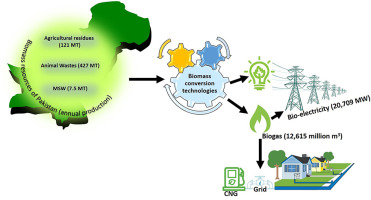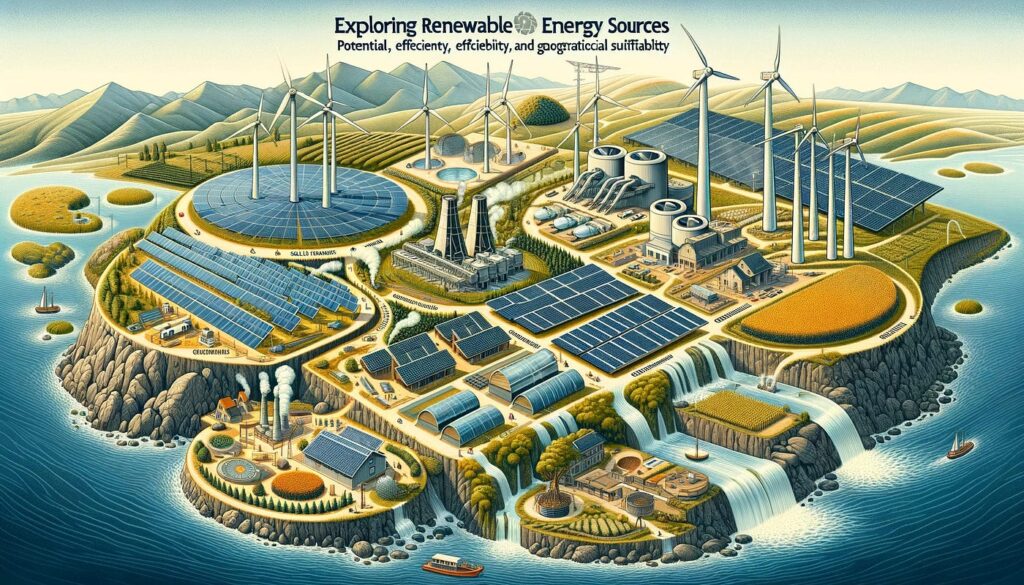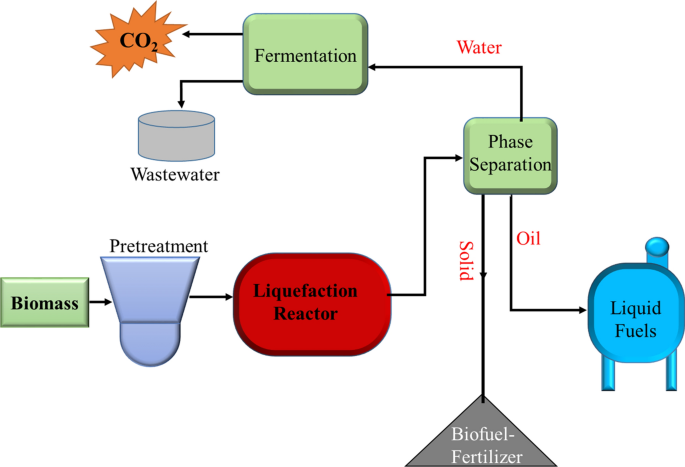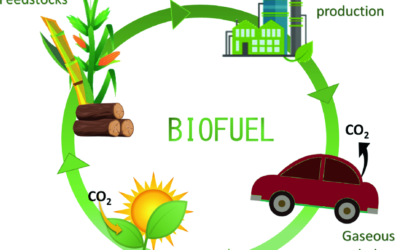Biomass energy stands as a beacon of sustainability, offering a renewable alternative that harnesses the power of organic materials to produce heat, electricity, and other forms of energy. As the world seeks greener solutions to combat climate change and reduce reliance on fossil fuels, biomass emerges as a promising avenue with its array of environmental benefits. From mitigating greenhouse gas emissions to fostering carbon neutrality, the utilization of biomass presents a compelling case for sustainable energy practices.
Just as biomass energy embodies a sustainable approach to power generation, men’s workout joggers symbolize a sustainable choice in activewear.
Harnessing Nature’s Bounty

Biomass energy taps into the natural cycle of carbon, utilizing organic matter derived from plants, agricultural residues, forestry by-products, and organic waste to generate energy. Unlike fossil fuels, which release stored carbon into the atmosphere, biomass energy operates within a closed carbon loop. Through photosynthesis, plants absorb carbon dioxide (CO2) from the atmosphere, incorporating it into their biomass. When this biomass is used for energy production, the CO2 released is equivalent to the amount previously absorbed, maintaining carbon balance.
The versatility of biomass resources further enhances its appeal. From dedicated energy crops like switchgrass and willow to agricultural residues such as corn stover and rice husks, a diverse range of feedstocks can be utilized for energy generation. By harnessing these abundant resources, biomass energy offers a scalable solution that can be tailored to local conditions and needs, reducing dependency on finite fossil fuel reserves. If Biomass Energy exemplifies environmental responsibility, the best spa in Toronto mirrors this commitment by integrating eco-friendly practices into its operations.
Reducing Greenhouse Gas Emissions
One of the most significant environmental benefits of biomass energy lies in its potential to mitigate greenhouse gas emissions. When compared to fossil fuels, biomass combustion releases relatively lower levels of CO2 into the atmosphere. This reduction in emissions is attributed to the carbon-neutral nature of biomass, where the CO2 released during combustion is offset by the CO2 absorbed during the growth phase of the organic feedstock.
Furthermore, biomass energy systems can be designed with advanced technologies such as carbon capture and storage (CCS) to further minimize emissions. CCS involves capturing CO2 emitted from biomass combustion and storing it underground or utilizing it for enhanced oil recovery. By integrating CCS into biomass facilities, it becomes possible to achieve negative emissions, effectively removing CO2 from the atmosphere and contributing to climate change mitigation efforts.
Similar to how biomass energy fosters sustainability on a broad scale, an interior designer in Lighthouse Point, with their meticulous approach, contributes to sustainability in individual homes and spaces.
Promoting Sustainable Land Management
Beyond its direct environmental benefits, biomass energy promotes sustainable land management practices that enhance ecosystem resilience and biodiversity. The cultivation of energy crops and the responsible harvesting of forestry residues contribute to land restoration and conservation efforts. By maintaining healthy forest ecosystems and promoting the growth of perennial energy crops, biomass production can help combat deforestation and land degradation, preserving vital habitats for wildlife.
Moreover, the utilization of organic waste streams for energy generation reduces the environmental impacts associated with landfilling and incineration. By diverting organic waste from landfills, biomass energy mitigates methane emissions, a potent greenhouse gas with a significantly higher global warming potential than CO2. This waste-to-energy approach not only reduces the burden on landfill infrastructure but also contributes to the circular economy by converting waste into valuable resources.
Just as biomass energy harnesses natural resources for cleaner power generation, a mobile notary leverages technology to streamline processes, minimizing the environmental impact associated with traditional notarial procedures.
Driving Sustainable Development
In addition to its environmental advantages, biomass energy plays a pivotal role in driving sustainable development at both local and global scales. By fostering the growth of bioenergy industries, biomass creates opportunities for rural economies, generating employment and income for local communities. The decentralized nature of biomass production and processing facilities further decentralizes energy production, enhancing energy security and resilience.
Furthermore, just like communities have the power to shape their energy future, individuals and cooperatives in St. Augustine can also take charge of maintaining their local environment. If you’re looking for a reliable company for concrete cleaning in St. Augustine, you’ll be contributing to both the cleanliness of your community and the sustainability of your surroundings. This small step not only enhances the aesthetic appeal but also aligns with the broader goals of creating a more inclusive and sustainable living space for everyone.
Exploring Technological Innovations

Technological innovations in biomass energy continue to expand the horizons of renewable energy production, driving efficiency gains and unlocking new possibilities for sustainable development. Advancements in biomass conversion technologies, such as gasification and pyrolysis, enable the efficient conversion of biomass feedstocks into biofuels, biochemicals, and bioproducts. Integrated biorefineries integrate multiple conversion pathways to maximize resource utilization and minimize waste, paving the way for a more circular economy.
Furthermore, the integration of digitalization and automation technologies enhances the operation and control of biomass facilities, optimizing energy production and reducing environmental impacts. As research and development efforts accelerate, the potential for breakthrough innovations in biomass energy remains vast, offering promising avenues for addressing global energy and environmental challenges. When it comes to managing all this efficiently, especially in terms of online presence and customer interaction, utilizing go high level pages can significantly streamline processes and improve overall effectiveness.
With ongoing research and development, novel approaches to biomass utilization are emerging, including the production of advanced biofuels and bioplastics from lignocellulosic biomass. These advanced products offer higher energy densities and lower environmental impacts compared to traditional biofuels, opening up new markets and applications for biomass-derived materials. Additionally, innovations in biomass pretreatment and conversion processes are improving efficiency and reducing costs, making biomass energy more competitive with fossil fuels.
Furthermore, as we delve into the realm of sustainable living, individuals are increasingly mindful of their choices, extending beyond energy sources. Consider the emergence of eco-conscious practices in daily routines, such as embracing a vegan lifestyle. This shift towards mindful consumption has extended to personal care, giving rise to the popularity of a vegan beauty supplements pack. In aligning with the principles of sustainability, these packs offer a holistic approach, promoting both personal well-being and environmental harmony. This interconnected journey, from biorefinery advancements to vegan beauty supplements, underscores the collective endeavor towards a more eco-friendly and health-conscious future.
Navigating Policy and Regulatory Frameworks
The advancement of biomass energy is closely intertwined with supportive policy and regulatory frameworks that incentivize investment, promote market development, and ensure environmental sustainability. Governments around the world are implementing renewable energy targets, feed-in tariffs, and carbon pricing mechanisms to accelerate the transition to biomass and other renewable energy sources.
Furthermore, in the realm of environmental events, such as the aquarium expo, sustainability certification schemes, and standards provide assurance that biomass feedstocks are sourced responsibly and meet environmental and social criteria. Nevertheless, navigating complex regulatory landscapes and addressing competing policy priorities pose challenges to the widespread adoption of biomass energy. Effective policy coordination and stakeholder engagement are essential to overcome barriers and create an enabling environment for biomass energy deployment.
As the biomass energy sector continues to evolve, policymakers face the challenge of balancing competing interests and priorities, including energy security, environmental protection, and economic development. Collaborative policymaking processes that involve stakeholders from government, industry, academia, and civil society can help identify synergies and trade-offs and develop holistic approaches to biomass energy governance. Additionally, considerations for industries like Manchester United soccer apparel might also be integrated into these discussions to ensure a comprehensive understanding of economic impacts.
Moreover, international cooperation and knowledge sharing are critical for harmonizing standards and best practices across regions and promoting the sustainable development of the global biomass energy market. By navigating policy and regulatory frameworks effectively, policymakers can unlock the full potential of biomass energy to contribute to a more sustainable and resilient energy future.
In case you need help buying your new sustainable home, consider consulting with the top mortgage brokers in Raleigh NC. They can guide you through the mortgage process and assist in making informed decisions for your home purchase.
Addressing Environmental Concerns
While biomass energy offers significant environmental benefits, it is not without its challenges and potential trade-offs. Concerns have been raised regarding the environmental impacts of biomass cultivation, including land use change, water consumption, and biodiversity loss. Additionally, the combustion of biomass can emit pollutants such as particulate matter, nitrogen oxides, and volatile organic compounds, which may have local air quality implications. To address these concerns, sustainable biomass production practices, emission control technologies, and air quality monitoring systems are essential. Furthermore, lifecycle assessments that consider the full environmental footprint of biomass energy systems are needed to inform decision-making and ensure that biomass utilization aligns with broader sustainability objectives. For truck owners who operate in Tennessee, it’s also crucial to consider aspects like owner operator truck insurance in Tennessee to ensure comprehensive coverage and compliance with state regulations.
Sustainable biomass production practices, such as agroforestry and rotational cropping, can help minimize land use change and preserve natural habitats while enhancing soil health and biodiversity. Additionally, water-efficient irrigation techniques and watershed management strategies can reduce the environmental impact of biomass cultivation and ensure the sustainable use of water resources.
The discussion of clean energy solutions shouldn’t solely focus on power generation. While exploring cleaner combustion technologies like biomass gasification and combined heat and power systems is crucial, we must also consider the everyday products we use. For instance, cream with collagen, a popular skincare product, often raises concerns about its environmental impact during production and disposal. By adopting more sustainable practices throughout the supply chain, from sourcing ingredients to packaging, we can ensure that even our beauty routines contribute to a healthier planet, alongside advancements in large-scale energy production.
Expanding Global Markets
The global biomass energy market is experiencing rapid expansion as countries seek to diversify their energy sources, reduce dependency on fossil fuels, and meet climate targets. This push for clean energy solutions is also fueling advancements in other fields, like robotic surgery, where precise instruments and minimal invasiveness are crucial for patient recovery. Europe has emerged as a leader in both biomass energy deployment, driven by supportive policies, abundant biomass resources, and established supply chains, and in the development of cutting-edge medical technologies.
Meanwhile, if you’re in Loveland and looking to manage waste efficiently, finding a reliable company for dumpster rental in Loveland can be a game-changer. Regions such as North America, Asia-Pacific, and Latin America are witnessing growing investments in biomass power generation, biofuel production, and biorefinery development. International trade in biomass feedstocks and bioenergy products is also on the rise, facilitated by trade agreements and market incentives. However, market uncertainties, supply chain disruptions, and geopolitical tensions pose challenges to the sustained growth of the global biomass energy market. Collaboration among governments, industry stakeholders, and international organizations is crucial to fostering market stability and promoting sustainable biomass trade.
In addition to traditional biomass markets, emerging opportunities are arising in sectors such as biobased chemicals, materials, and transportation fuels. The growing demand for renewable alternatives to fossil-based products is driving investments in biorefineries and bioconversion technologies that can produce a wide range of biobased products from biomass feedstocks. Furthermore, the integration of biomass energy with other renewable energy sources, such as wind and solar, is creating synergies that enhance energy system flexibility and resilience. By tapping into these diverse market opportunities and fostering cross-sectoral collaboration, stakeholders can accelerate the transition to a more sustainable and diversified energy future. If you’re looking for a company for solar panel replacement in Hillsborough, considering these renewable options can also be beneficial for your local energy needs.
Empowering Rural Communities
Biomass energy has the potential to empower rural communities by providing economic opportunities, enhancing energy access, and fostering local development. In rural areas where biomass resources are abundant, bioenergy production can create jobs along the biomass value chain, from cultivation and harvesting to processing and distribution. Moreover, decentralized biomass energy systems, such as biogas digesters and biomass cookstoves, offer off-grid communities a reliable and affordable source of energy for cooking, heating, and electricity generation. By reducing reliance on traditional biomass fuels like wood and charcoal, biomass energy improves indoor air quality and reduces health risks associated with indoor pollution. Furthermore, community-led bioenergy projects enable local ownership and decision-making, strengthening social cohesion and resilience in rural areas.
The empowerment of rural communities through biomass energy extends beyond economic benefits to encompass social and environmental dimensions. By involving local stakeholders in project planning and implementation, biomass energy projects can generate social capital, build trust, and enhance community resilience to external shocks. Moreover, the adoption of sustainable land management practices and agroforestry techniques can improve soil fertility, increase crop yields, and enhance ecosystem services, thereby contributing to food security and environmental sustainability. By leveraging the potential of biomass energy to create shared value for rural communities, stakeholders can foster inclusive and equitable development that benefits both people and the planet. For instance, implementing pediatric dentistry in Fayetteville could be one way to address healthcare needs and improve overall well-being within these communities.
Embracing Cross-Sectoral Collaboration

The transition to a sustainable biomass energy future requires cross-sectoral collaboration and partnerships that transcend traditional boundaries. Collaboration between the agriculture, forestry, energy, and waste management sectors is essential to optimize biomass resource utilization, minimize waste, and maximize synergies. Integrated landscape approaches that consider multiple land uses, ecosystem services, and stakeholder interests can facilitate sustainable biomass production while safeguarding biodiversity and natural habitats. Furthermore, public-private partnerships and knowledge-sharing initiatives can accelerate technology transfer, capacity building, and innovation diffusion across regions and sectors. By embracing collaboration and cooperation, stakeholders can collectively address complex challenges and unlock the full potential of biomass energy to contribute to a more sustainable and resilient future.
While cross-sectoral collaboration in biomass energy holds immense promise, it’s important to remember that a successful transition requires not just scientific advancements but also effective communication strategies. This is where video production in Philadelphia comes in. Local production companies can play a crucial role in creating engaging and informative video content that raises awareness about biomass energy solutions, showcases success stories, and fosters public dialogue. By collaborating with researchers, policymakers, and community leaders, these videographers can translate complex scientific concepts into easily understandable narratives, reaching a wider audience and building crucial support for this sustainable energy source.
Conclusion
In conclusion, the environmental benefits of biomass energy are vast and multifaceted, offering a renewable alternative that mitigates greenhouse gas emissions, promotes sustainable land management, and drives inclusive development. However, realizing the full potential of biomass energy requires ongoing innovation, supportive policy frameworks, and collaboration across sectors and regions. By harnessing technological innovations, navigating policy challenges, addressing environmental concerns, expanding global markets, empowering rural communities, and embracing cross-sectoral collaboration, we can unlock the transformative power of biomass energy and build a more sustainable energy future for generations to come.

